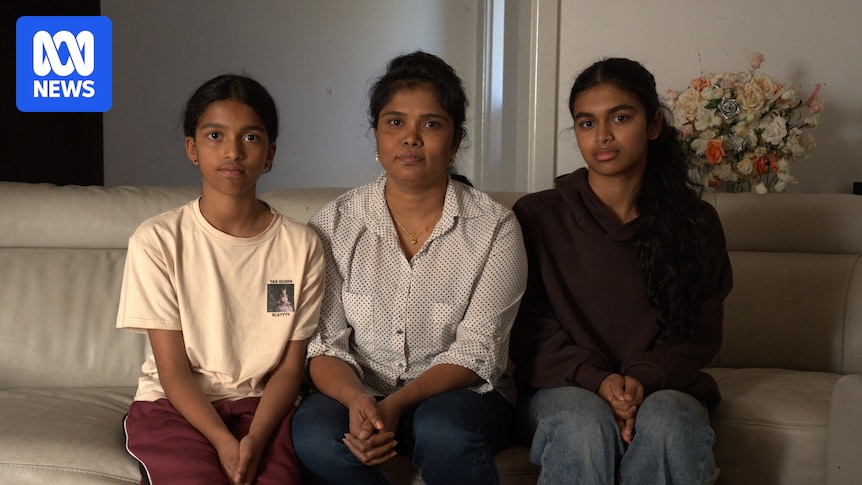
Rathy Barthlote and her family find themselves ensnared in a complex and distressing situation. Her 11-year-old daughter, Lolitta, was born in Australia and became a citizen with full rights at the age of 10. However, Ms. Barthlote, her husband, and their 16-year-old daughter, Logitha, remain asylum seekers with limited rights. The family has lived in Australia since 2014, awaiting the resolution of their refugee claims.
“Their friendships, schooling, and sense of belonging are all here,” Ms. Barthlote expressed. “One child has everything, the other child is worried about her future.” The stark contrast in residency status between sisters Logitha and Lolitta underscores the family’s precarious situation. The prospect of deportation looms as a constant fear for the Barthlote family.
Their journey to Australia began in 2013 when they arrived by boat. Shortly thereafter, the Abbott government implemented the ‘Fast Track’ system to expedite the processing of asylum claims for boat arrivals. This system, criticized by many for limiting procedural rights, was eventually abolished by the Labor Party upon coming to power. However, the issues it created persist, leaving Ms. Barthlote among approximately 8,000 asylum seekers whose claims were rejected and who are now appealing those decisions.
Calls for Government Action
Former Coalition immigration minister Alex Hawke has called on the government to address the status of these asylum seekers. “People have been here a long time. And the reality of their condition is that they will be staying here,” Mr. Hawke stated. “We now have to deal with the actual reality of the situation.”
Despite the previous Coalition government’s inaction on this issue, Mr. Hawke now advocates for resolution. “It’s time the Labor Party committed to resolving the issues. Some of those are tricky, but a lot of them are now no longer tricky,” he asserted.
Contrasting Outcomes for Asylum Seekers
Among the asylum seekers is Priya Nadesalingam, whose case gained national attention through the support of the Queensland town of Biloela. Both Ms. Barthlote and Ms. Nadesalingam arrived in Australia on the same boat in 2013, fleeing Sri Lanka’s civil conflict. While the Nadesalingam family has been granted permanent residency, Ms. Barthlote and thousands of others remain in uncertainty.
Ms. Barthlote’s case has been in limbo for over a decade. After her initial refugee claim was rejected by the Immigration Assessment Authority (IAA), she successfully appealed, only to have her case rejected again. Her subsequent appeal has been pending since mid-2019.
Life in Limbo
While awaiting resolution, Ms. Barthlote and her husband have established a life in Melbourne’s western suburbs. She works in aged and disability care and part-time at a union, while her husband juggles two jobs. Their daughter, Logitha, aspires to study forensic science at university, but the financial burden of enrolling as a foreign student looms if her status remains unchanged.
“She wants to have a dream but she can’t get that dream,” Ms. Barthlote lamented. Logitha faces numerous challenges, including restricted travel, limited access to Medicare, and uncertainty about her future in Australia.
Uncertain Future for Many
Since taking office in 2022, the Labor government has begun addressing the status of around 20,000 people found to be refugees under the Fast Track system, transitioning them to a “permanent visa pathway.” However, the fate of the remaining 8,000 asylum seekers remains unclear. Ministerial intervention provides some with a pathway to permanent residency, but the criteria are inconsistent.
“There is no clear rationale or consistency as to who is afforded this treatment and who is not,” said Sanmati Verma, legal director at the Human Rights Law Centre. She criticized the policy as “cruel” and divisive, urging the government to recognize the contributions of long-term residents and grant them permanent visas.
The Home Affairs Department, however, maintains that those whose claims were rejected and have exhausted all appeals are expected to leave Australia voluntarily. For Ms. Barthlote and her family, securing a future in the country they have called home for over a decade is paramount. “We are part and parcel of this community. We have no home to return to in Sri Lanka,” she declared.





